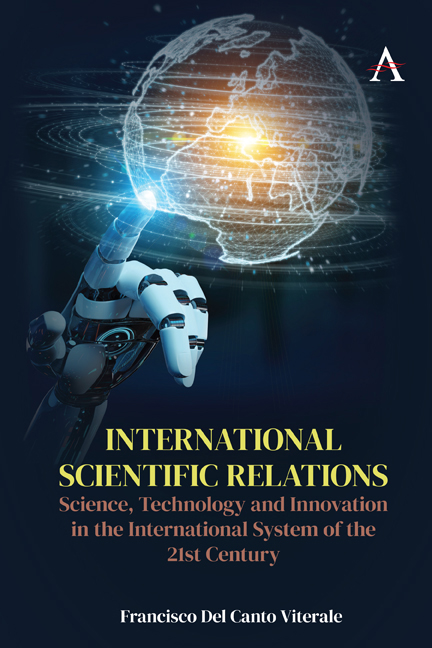 International Scientific Relations
International Scientific Relations 2 - International Context
Published online by Cambridge University Press: 08 October 2021
Summary
In recent decades of the 20th century, the world started a frenzied transformation, prompted by multiple global processes that have operated in parallel within the world order and have generated significant changes in the whole of the international system: the end of the Cold War and the Soviet Union, the new trends towards globalization and regionalization, the new challenges to the Nation-State, the evolution towards a new stage of capitalism, and an unprecedented scientific and technological revolution are some of the more relevant processes that have affected the international system and that are creating a new world order in the 21st century.
This new context implies substantial changes in the international order, that have generated (and still are generating) a structural transformation of the political, economic, social, technological, educational, and cultural spheres. The majority of experts agree that nowadays we are experiencing a period of systemic transition within international relations, characterized mainly by the speed, magnitude, and complexity of the changes.
To perform a detailed, in-depth analysis of this new global order, it is necessary to study the main parameters of the international system (actors, interactions, and processes) to understand how these elements would shape a new world order.
Actors of the International System
The first of the elements we must consider are the main actors that take part in the global dynamics. In our contemporary international reality, there coexists a large range of actors with varied characteristics according to their number, power, role, and interests. The post–Cold War international system has opened a new stage where the traditional actors of international relations coexist alongside new actors and where the Nation-State is forced to interact with non-State actors that exhibit a renewed prominence.
Changes in the role of the Nation-State
The world order created by the Peace of Westphalia in 1648 crowned the Nation-State as the main actor of international relations and made it the main actor responsible for security, administration, cooperation, justice, and social integration. However, in recent decades, the State is being challenged by new actors and non-State entities, such as transnational corporations (TNCs), intergovernmental organizations (IGOs), or nongovernmental organizations (NGOs).
- Type
- Chapter
- Information
- International Scientific RelationsScience, Technology and Innovation in the International System of the 21st Century, pp. 23 - 40Publisher: Anthem PressPrint publication year: 2021
